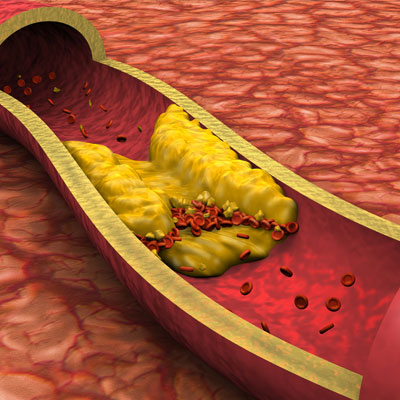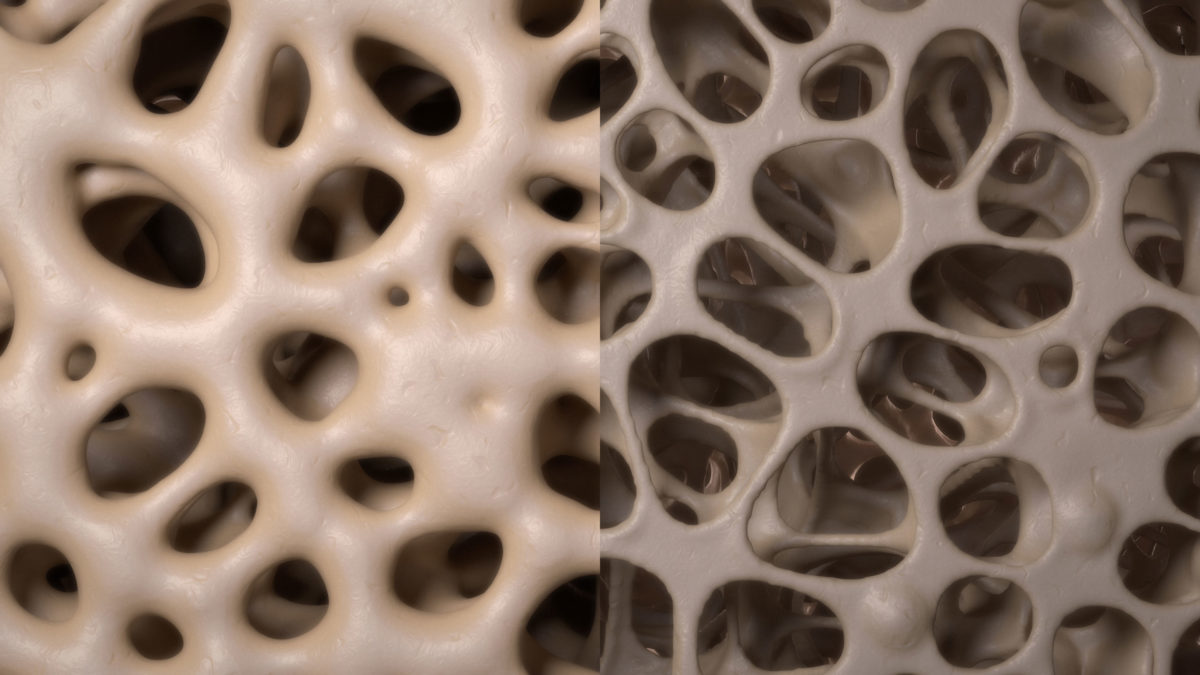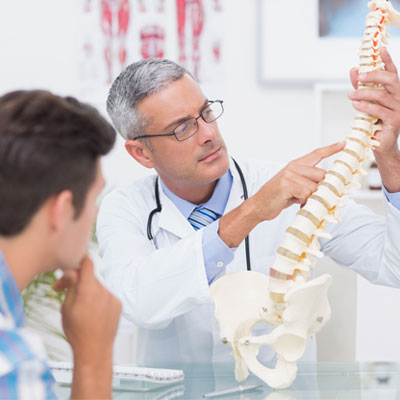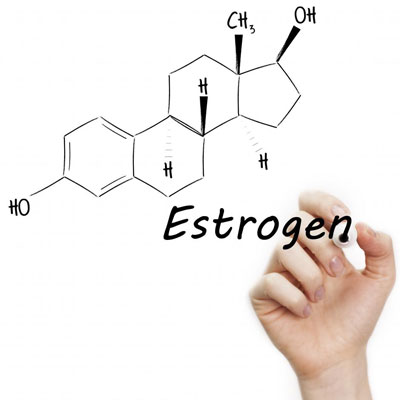Testosterone and Bone Density: How Does Testosterone Increase Bone Density
Contents
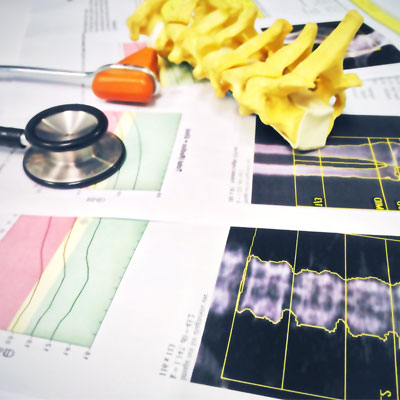
Not only does testosterone directly impact bone density, but it also has an indirect effect on the bones via its influence on other hormones, such as estradiol (estrogen) and growth hormone.
As we delve into this report on bone density and testosterone, we look at the following topics:
- The effects of testosterone on bone metabolism, including bone remodeling
- Why women need testosterone to maintain bone density
- The importance of testosterone for male bone density
- How testosterone therapy can benefit the bones
You may be wondering how does testosterone increase bone density?
Testosterone influences the bones in many ways, including by increasing the level of other hormones that also aid in bone cell production. Bone turnover takes approximately 12 years. During the time, the entire skeletal content changes – one cell at a time. As old bone cells die, new ones form to take their place. In the next section, we will examine this process.
The connection between testosterone and bone density is so strong that low testosterone levels can lead to osteoporosis.
Testosterone Effects on Bone Metabolism
Osteoporosis is a condition characterized by low bone mass, with osteopenia being the precursor.
The two types of osteoporosis are primary and secondary, as defined below:
- Primary osteoporosis, the most common form, is linked to a decrease in androgen and estrogen hormones (testosterone and estradiol respectively) associated with menopause and andropause. People with primary osteoporosis experience increased bone turnover with faster bone resorption that outpaces new bone growth.
- Secondary osteoporosis has a clear, definable etiologic cause, often associated with gradual age-related bone loss. A decrease in stem-cell precursors is related to a loss of cortical bone. Smoking, alcohol consumption, lack of exercise, glucocorticoid medications, and gastrointestinal disease can increase the risks of secondary osteoporosis.
The link between bone mineral density and testosterone has a lot to do with bone remodeling and testosterone’s effects on other hormones, such as:
Estradiol – testosterone undergoes conversion by the enzyme aromatase into estradiol, the body’s primary form of estrogen. If a person has low testosterone, then there is not enough testosterone to convert into estradiol.
The impact of low estrogen levels on the bones is as follows:
- Slowing down of the bone resorption process – low estrogen causes osteoclasts to live longer and absorb more bone
Human growth hormone – one of the most critical of all hormones in the body, HGH supports bone density in the following ways:
- Stimulating the production of insulin growth factor 1 which mediates the effects of HGH on bone cells
- Regulating cellular regeneration – including new bone cells (osteoblasts)
- Promoting the production of testosterone (reciprocal)
- Insulin growth factor 1 – IGF-1 mediates growth hormone activities, helping increase the production of osteoblasts
How does testosterone affect bone density?
Testosterone not only assists in the production of these hormones crucial for bone remodeling, but it also directly helps with osteoblast formation so that there will always be enough new bone cells to replace those that die off and get resorbed into the body.
Bone cells weaken as they age. They have an active lifespan of about 12 years. The bone remodeling process is a crucial one as it relies on osteoblasts to maintain skeletal integrity.
Osteocytes (former osteoblasts) are the cells that maintain bone homeostasis inside the fully formed bones. Osteoclasts are the cells that dissolve old bone cells to make way for new ones.
A decline in testosterone and bone density often means that low estrogen levels speed up the process of bone turnover before new osteoblasts are available to take the place of the resorbed bone cells.
Testosterone has both a direct and indirect (through other hormones) effect on bone mineral density.
Why Testosterone Is Crucial for Women’s Bone Density
The subject of bone density and testosterone for women is one that every female needs to understand. It is well-known that estrogen is vital for strong bones. Estrogen suppresses the formation of osteoclasts, the cells that breakdown old bone cells. Without enough estrogen, bone turnover speeds up, leading to a mineral loss in the bones. That can cause an increased risk of fractures. Estrogen does not influence osteoblasts, but testosterone impacts all three types of bone cells.
A loss of testosterone and bone density means that new bone cell growth decreases. Testosterone plays an essential role in stimulating growth hormone production, which, in turn, increases IGF-1 secretion. These hormones are all vital to protecting bone mineral density throughout life.
The lifetime risk of bone fractures in women over fifty years of age is 50%. Because women produce significantly less testosterone than men, to begin with, even the slightest decline can lead to dire consequences.
Estrogen therapy, which is the standard treatment for menopause, does not address the subject of low testosterone levels. When it comes to low testosterone and bone density, women must also know their testosterone levels. If testosterone decline is an issue, it will also influence estrogen levels. Testosterone therapy is a safe treatment for women and can help increase estrogen levels at the same time.
It is essential that women maintain healthy testosterone and estrogen levels to protect their bone density.
Low Testosterone and Declining Bone Density in Men
It may not seem as though the issue of low testosterone and bone density in men is as critical as it is in women. Although females have a significantly greater risk of developing osteoporosis and Trusted sourceWhat is osteopenia?Family DoctorGo to sourceosteopenia , the consequences for males are considerably more extreme. Men may not experience a bone fracture until ten years later than women, but when they do, it is often more serious. Mortality and morbidity rates for male hip fractures are much higher than those of females. Although the risk of fracture over fifty years of age is only 20%, because it happens later in life, it produces a higher rate of disability and death.
Testosterone deficiency in males is associated with an increased risk of osteoporotic fractures. That is why testosterone therapy and bone density are subjects to discuss with a hormone specialist if there are any concerns. Joint pains and height shrinkage are two tell-tale signs of low testosterone levels and bone density decline.
Peak bone mass in males is naturally higher than in females, so bone loss can lead to more severe fractures. Because androgen receptors are found in osteoblasts, osteocytes, and osteoclasts, testosterone affects the bones at every stage of their development.
Testosterone therapy has proven beneficial for increasing bone density in men as well as in women.
Benefits of Testosterone Therapy for Bone Density
Testosterone therapy is extremely beneficial for maintaining healthy bones throughout life. How does testosterone help bone density? It supports the development of osteoblasts and osteocytes, as well as osteoclasts that help with bone remodeling. Bone remodeling is crucial to take away the weaker, older bone cells and replace them with newer, stronger cells. Testosterone also increases estrogen levels to slow down bone resorption rates to ensure there are enough new cells ready to take the place of those that die off.
The benefits of increasing the serum level of testosterone and bone density are endless. By improving bone mineral density, testosterone helps to decrease the risk of deadly fractures to enable an active life well into old age. Reduced risk of osteoporosis improves the odds of disability caused by severe fractures. In addition, testosterone offers many other health benefits for adults.
- Dr. Mark Ng Tang Fui, Rudolf Hoermann, Dr. Brendan Nolan, MBBS, BSc, FRACP, Michelle Clark. PhD Candidate, Jeffrey D Zajac, PhD, Mathis Grossmann
- Anne M. Kenny MD, Alison Kleppinger, MS, Kristen Annis, Margaret Rathier, MD, Bruce Browner, MD, James O. Judge, MD, Daniel McGee, PhD
- Howard A. Fink, MD, MPH, Susan K Ewing, Kristine Ensrud, MD, MPH, Dr. Elizabeth Barrett-Connor, Brent Taylor, PhD, Dr. Jane A. Cauley, Eric S. Orwoll, MD
- Mieke Sinnesael, Steven Boonen, Frank Claessens, Evelien Gielen and Dirk Vanderschueren
- Zhichao Zhang, Deying Kang & Hongjun Li
- Osamu Arisaka, Madoka Arisaka, Yuko Nakayama, Sachi Fujiwara, Keijiro Yabuta
Effect of testosterone treatment on bone remodelling markers and mineral density in obese dieting men in a randomized clinical trial
Effects of Transdermal Testosterone on Bone and Muscle in Older Men with Low Bioavailable Testosterone Levels, Low Bone Mass, and Physical Frailty
Association of Testosterone and Estradiol Deficiency with Osteoporosis and Rapid Bone Loss in Older Men
Testosterone and the Male Skeleton: A Dual Mode of Action
The effects of testosterone on bone health in males with testosterone deficiency: a systematic review and meta-analysis
Effect of testosterone on bone density and bone metabolism in adolescent male hypogonadism

